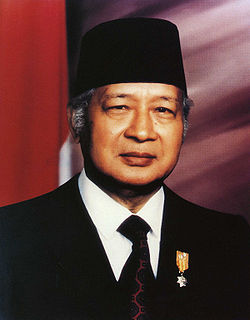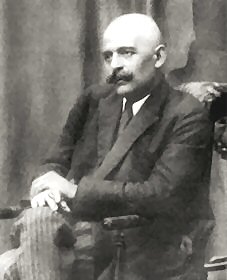A Quote by Albert Einstein
A man who is convinced of the truth of his religion is indeed never tolerant. At the least, he is to feel pity for the adherent of another religion but usually it does not stop there. The faithful adherent of a religion will try first of all to convince those that believe in another religion and usually he goes on to hatred if he is not successful. However, hatred then leads to persecution when the might of the majority is behind it.
Related Quotes
It is said that peace is the basic tenet of all religion. Yet it is in the name of religion that there has been so much disturbance, bloodshed and persecution. It is indeed a pity that even at the close of the twentieth century we've had to witness such atrocities because of religion. Flying the flag of religion has always proved the easiest way to crush to nothingness human beings as well as the spirit of humanity.
What our view of the effectiveness of religion in history does at once make evident as to its nature is--first, its necessary distinction; second, its necessary supremacy. These characters though external have been so essential to its fruitfulness, as to justify the statement that without them religion is not religion. A merged religion and a negligible or subordinate religion are no religion.
The First Amendment...does not say that in every respect there shall be a separation of Church and State....Otherwise the state and religion would be aliens to each other - hostile, suspicious, and even unfriendly....The state may not establish a 'religion of secularism' in the sense of affirmatively opposing or showing hostility to religion, thus preferring those who believe in no religion over those who do believe.
The easy confidence with which I know another man's religion is folly teaches me to suspect that my own is also. I would not interfere with any one's religion, either to strengthen it or to weaken it. I am not able to believe one's religion can affect his hereafter one way or the other, no matter what that religion may be. But it may easily be a great comfort to him in this life-hence it is a valuable possession to him.
The "establishment of religion" clause of the First Amendment means at least this: Neither a state nor the Federal Government can set up a church. Neither can pass laws which aid one religion, aid all religions, or prefer one religion over another. Neither can force nor influence a person to go to or to remain away from church against his will or force him to profess a belief or disbelief in any religion.
One or another man, liberated or cursed, suddenly sees-but even this man sees rarely-that all we are is what we aren't, that we fool ourselves about what's true and are wrong about what we conclude is right. And this man, who in a flash sees the universe naked, creates a philosophy or dreams up a religion; and the philosophy spreads and the religion propagates, and those who believe in the philosophy begin to wear it as a suit they don't see, and those who believe in the religion put it on as a mask they soon forget.





































